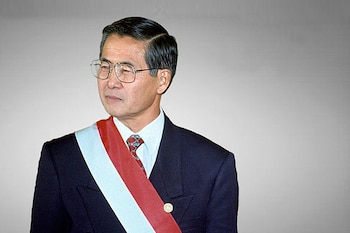
Protests in various areas of the country, contempt of curfew in Lima and Callao, and various conflicts social, respond in part to the lack of authority in Peru. In other words, the president of the republic, Pedro Castillo, does not fill the figure of leader, as did several former leaders, according to what was expressed by Manuel Carpio - Rivero, professor at Pacífico Business School.
“On April 5, Castillo cheated out of Congress, so it is unlikely that a country as chaotic as Peru can be ordered ,” the specialist told Infobae.
For Carpio-Rivero, in the country “there are no political leaders”, but it is not a recent problem, but from many years ago. “There are no leaders who are politicians or politicians who are leaders. That doesn't exist today,” he said.
“The outlook is worrying. You listen to the statements of the Prime Minister (Aníbal Torres) and you realize that the person who is sitting there does not have the preparation or the competences to hold that position. Imagine that multiplied by all the ministries and by the president. There is a lack of leadership that makes the country increasingly complicated,” he continued.
Along these lines, he considered that the last great political leader to govern Peru was Alberto Fujimori, in the 1990s. As he argued, the now prisoner for qualified homicide, kidnapping, embezzlement, ideological falsehood, corruption, among others, had what it took to direct the country to development.
“Without political overtones and being very objective, I think the last great leader that this country had was (Alberto) Fujimori. With the mistakes he made, he was able to order a country, prosecute it and turn it into many of the things that Peru has today, such as economic stability, opening up to international markets,” he said.
“It certainly developed with people who shouldn't have surrounded themselves. But after him, there hasn't been a leader who can continue to transform this country. Peru needs a leader with great courage, because there is a lack or lack of authority,” he added.
THE LEADER THAT PERU NEEDS
When consulted by the political leader that Peru needs, the analyst explained to this media outlet that his profile should be that of “a person who has courage and is firm, disruptive, who defies all beliefs. Don't be afraid to make unpopular decisions. Let him return to respect the principle of authority, that when there are situations of chaos, that he brings order without hesitation”.
“We are seeing it now in the protests. How easy it is to paralyze a country, you close a road and that's it, nothing happens. So the country needs bold, courageous, firm leadership. A leadership that can bring order to informality, which is the burden of this country,” he said.
“We now have leaders who are buyers of happiness. Every day he apologizes, tries to look good with everyone and that is not sustainable,” he added.
In this sense, Peru needs the emergence of an outsider that can stand out from traditional political parties. “I would have to distance, that would give him a lot of opportunities. However, the big problem is that the politicians we have don't have the capacity to build trust. And that is essential to connect with citizens,” he said.
“There are no leaders in either left, center or right. The problem is not defined by the political idea, I think there is not, at the moment, anyone who wants to be encouraged to lead this country, to order and transform it, with the skills that are required,” he said.
VOTO LIBRE
In order to choose a good president, people need to be competent and analytical when it comes to voting. For this reason, Manuel Carpio-Rivero asserted that what the population needs is to exercise a free vote without obligations, in this way the voters will develop the ability to decide for themselves, without influence.
“The healthiest democracies in the world are those that promote the basic and elementary principle that is freedom, but for everything, to say, decide and vote or not to vote. Peru has historical burdens that continue to condemn us, we have not evolved, we are orthodox, traditional and conservative. Very influenced on religious issues,” he said.
“All this makes a country not progress, because people don't have the ability to decide or think for themselves. But when a country promotes freedom of ideas, thought, religions, among others, society evolves much faster,” he concluded.
KEEP READING
Últimas Noticias
Debanhi Escobar: they secured the motel where she was found lifeless in a cistern

The oldest person in the world died at the age of 119

Macabre find in CDMX: they left a body bagged and tied in a taxi
The eagles of America will face Manchester City in a duel of legends. Here are the details

Why is it good to bring dogs out to know the world when they are puppies




